If you find yourself blushing in different social situations, know that you’re not alone. Blushing can be tough, especially when it happens during situations like making a mistake, feeling embarrassed, talking to someone you like, meeting new people, getting angry, giving presentations, or speaking in public.
Sections
- Acceptance and Mindset Shift
- Techniques and Practices
- Lifestyle Changes and External Help
- Avoiding Counterproductive Approaches
Acceptance and Mindset Shift
In this section, we will explore the importance of accepting your blushing and shifting your mindset to view it in a more positive light. By changing how you perceive blushing, you can feel more at ease in social situations.
Take ownership of your blushing and accept it fully
Rather than trying to hide your blushing, what if you were to accept that the world knew about it? When you’re openly accepting that you’re a blusher, it no longer has the same control over you.
This is sometimes called taking ownership. It’s the act of deciding to accept ourselves including our flaws.
When you’re no longer ashamed of it, you may even blush less, as it becomes less stigmatized for you.
Know that blushing is not as noticeable as you think
We tend to overestimate how visible our blushing is.[2, 4] In reality, blushing is not that noticeable, especially not for someone who doesn’t know you.
I’ve had clients excuse themselves because of their blushing when I’ve never even seen them blush. Blushing feels more noticeable than it is.
Say to yourself what you would say to a friend who blushes
What would you tell a good friend who told you that they easily blush?
Maybe something along the lines of this:
“I’m sorry you suffer so much from your blushing. But blushing is a human and normal reaction and I think it makes you more likable. I don’t think you need to hide your blushing because it’s a part of what makes you you. I don’t think anyone notices as much as you do. ”
Speaking this way to yourself is part of what’s called self-compassion. It helps against blushing because it lessens self-critical thoughts, and self-critical thoughts often cause blushing because they make us hyper-aware of our social mistakes.[1]
Know that blushing can help you make friends faster
Blushing can help you make friends faster because it makes you seem genuine and kind. It makes people forgive your mistakes and mess-ups easier when they see that you’re regretful thanks to your blushing.[13, 6, 5]
Blushing gives you many social advantages compared to not blushing.
Techniques and Practices
Here, we will discuss various techniques and practices to help you manage blushing and feel more confident in social situations. These methods can help you feel more in control when you begin to blush.
Focus on the situation instead of your blushing
Normally when we blush, we might start to focus on how embarrassing the blushing is and that we want it to go away. This leads to a negative spiral:
You blush -> You feel anxious about the blushing -> You likely blush even more.
But when you instead focus on what you are doing at that moment, you break this spiral:
You blush -> You focus on the situation -> Your blushing likely subsides.
This article on stopping being nervous around people has some tips for practicing how to focus on the situation.
Use a breathing exercise to relax and reduce blushing
Here’s a simple exercise you can do in most situations:
- Breathe in deeply through your nose.
- Feel your belly fill up with air.
- Breathe out through your mouth. Purse your lips slightly when the air blows out.
- Repeat 3 times.
We tend to blush when we activate our flight or fight system (Also called the sympathetic nervous system). Deep breathing activates our rest and digest system (Also called the parasympathetic system.) and the blushing subsides. Breathing exercises can also help you stop focusing on your blushing. And when you’re not focused on your blushing, it will naturally go away.
You can learn more about breathing exercises here: https://www.healthlinkbc.ca/health-topics/uz2255
Progressive Muscle Relaxation
Progressive Muscle Relaxation (PMR) is a technique that involves tensing and relaxing different muscle groups to reduce anxiety and physical tension. When you feel a blush coming on, start by tensing the muscles in your feet and holding for 5-10 seconds, then release. Move up your body, tensing and relaxing each muscle group until you reach your face. By focusing on this process, you can reduce anxiety and minimize blushing.
For example, if you’re in a public speaking situation and feel a blush coming on, take a moment to tense and relax your muscles discreetly while maintaining your composure. This can help you regain control and continue your presentation with confidence.
Visualization Techniques
Visualization is a powerful tool that can help you manage blushing by mentally rehearsing a situation without blushing. Close your eyes and imagine a situation where you typically blush. Instead of blushing, envision yourself remaining calm and in control. Practice this regularly to help train your mind and body to react differently in real situations.
For instance, if you often blush when speaking to someone you’re attracted to, visualize a conversation with that person where you remain relaxed and at ease. This mental rehearsal can help you feel more confident and less likely to blush in reality.
Grounding Techniques
Grounding techniques help you focus on the present moment and can help reduce anxiety and blushing. When you feel yourself starting to blush, try engaging your senses to bring your attention back to the present. For example, focus on the feeling of your feet on the ground or the sensation of an object in your hand.
Imagine you’re at a party and start blushing during a conversation. To ground yourself, pay attention to the taste of your drink, the texture of the cup, or the music playing in the background. By shifting your focus, you can help alleviate the blushing and continue the conversation more comfortably.
Seek out situations where you blush to stop caring about it
To stop caring about blushing, you need to “teach” your brain that it’s not a big deal. This is called habituation and it’s a well-researched method of removing fears, including blushing.
You can do this where you can find a safe place where you know you will blush, but where it’s not too big of a deal if you do it.
Maybe introducing yourself at a networking mingle or some other type of social event where you meet new people you don’t care too much about. That way you can practice exposing yourself to blushing.
Lifestyle Changes and External Help
In this section, we will explore lifestyle changes and external help options that can support you in managing your blushing. These strategies can provide additional support and relief, making it easier to navigate social situations.
Medications can help get rid of chronic blushing and social anxiety
If nothing else helps, consult with a doctor about appropriate medications. There are some medications and other medical interventions that are effective against blushing:
https://www.betterhealth.vic.gov.au/health/conditionsandtreatments/blushing-and-flushing
Consume less coffee and alcohol
Alcohol[10, 12] and hot (not cold) coffee[11] are both common triggers for blushing. Avoiding them can help if you want to prevent facial blushing.
Deal with underlying reasons for why you may blush
Sometimes blushing is a symptom of social anxiety. If so, you might want to address your social anxiety first. Here are our book recommendations on social anxiety and shyness.
Speak to a therapist
A therapist can help you decrease your blushing and find underlying reasons for why you may blush. It may be covered by your healthcare insurance.
We recommend BetterHelp for online therapy, since they offer unlimited messaging and a weekly session, and are cheaper than going to a therapist's office.
Their plans start at $64 per week. If you use this link, you get 20% off your first month at BetterHelp + a $50 coupon valid for any SocialSelf course: Click here to learn more about BetterHelp.
(To receive your $50 SocialSelf coupon, sign up with our link. Then, email BetterHelp’s order confirmation to us to receive your personal code. You can use this code for any of our courses.)
Avoiding Counterproductive Approaches
In this final section, we will address some counterproductive approaches that can make your blushing worse. Being aware of these pitfalls can help you avoid them and instead focus on more effective strategies for managing your blushing.
Be aware of bad advice that can make your blushing worse
The following advice may sound good but can worsen your blushing
- Use makeup to hide your blushing
- Step out of the room/avoid the situation
- Distract people to look at something else
- Close your eyes for a minute
The reason tips 1-3 are so bad is that they are what’s called avoidant behaviors. Avoidant behaviors actually reinforce our fears because each time we avoid something we maintain or increase our fear of it.[3, 7]
Tip number 4 is bad because it’s hard to apply in a social setting. You probably won’t be able to close your eyes and forget about your red cheeks in the middle of an embarrassing situation.
Deal with underlying reasons for why you may blush
Sometimes blushing is a symptom of social anxiety. If so, you might want to address your social anxiety first. Here are our book recommendations on social anxiety and shyness.
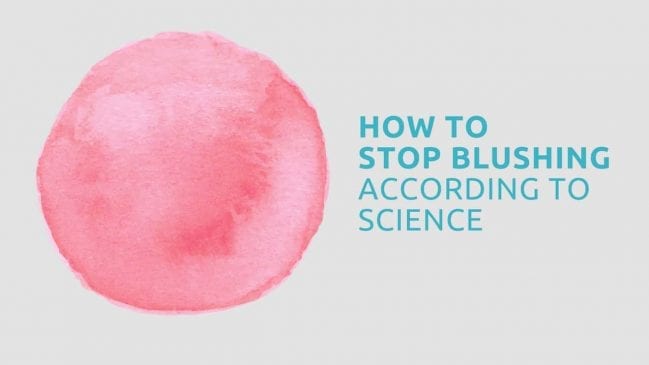


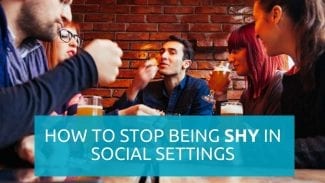
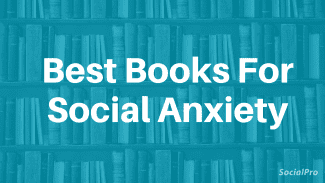
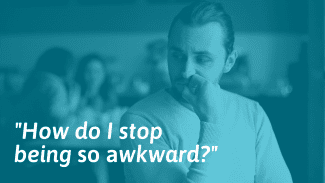



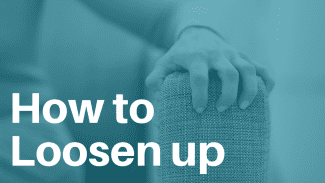
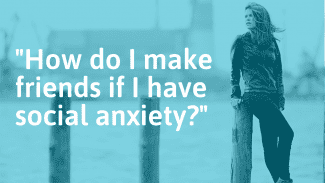
Hi, this article was super helpful but I am wondering how to go about it. I have hated blushing, mostly in places where there is no reason to blush. But in my brain, I think…”Oh no, what if I blush right now, it would look so weird!” Anyway is there a way to go about not hating it, because when I am in the situation all I can think about is the heat surging in my face and I don’t know what to do. 🙁 Afterwards, I’m like why did it even matter, but in the moment it’s the worst feeling ever!!! Please if you have any tips? 🙂
Own your blushing.
Seriously. I think it’s very endearing with people who blush – I can’t dislike someone like that. Blushing is a pro-social physical reaction that helps others see that you’re harmless and mean only good. Once you own up to it, you’ll also notice you will blush far more seldom. The first step is to stop trying to avoid your natural reaction.
Also, most times other people won’t even notice your blushing. I was recently talking with an acquaintance who was saying how she blushed all the time and it was so embarrassing. But I have NEVER even noticed her blushing, even though I’ve spent more than 100 hours in her company. It’s not as apparent to others as it is to you.
Great article, it really is well composed, in my case the blushing occurs mainly on my ears it happens out of nowhere, i am going to try those tips also, but what are your thoughts for my case.
This sounds good, informative, and professional. Was very helpful to me, seeing how I deal with some of these social behaviors as well. It had me thinking and wanting to try these steps out.
Glad to hear that George. Let me know how it goes if you try out any of the steps.